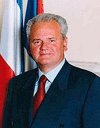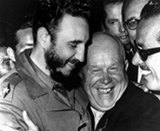
Mystery deepens over Milosevic’s death
The controversy surrounding the sudden death of former Yugoslav president Slobodan Milosevic in his jail cell at the Hague has only deepened with the autopsy performed in the Netherlands and the vague, self-serving statements made by officials of the UN war crimes tribunal.



.gif)